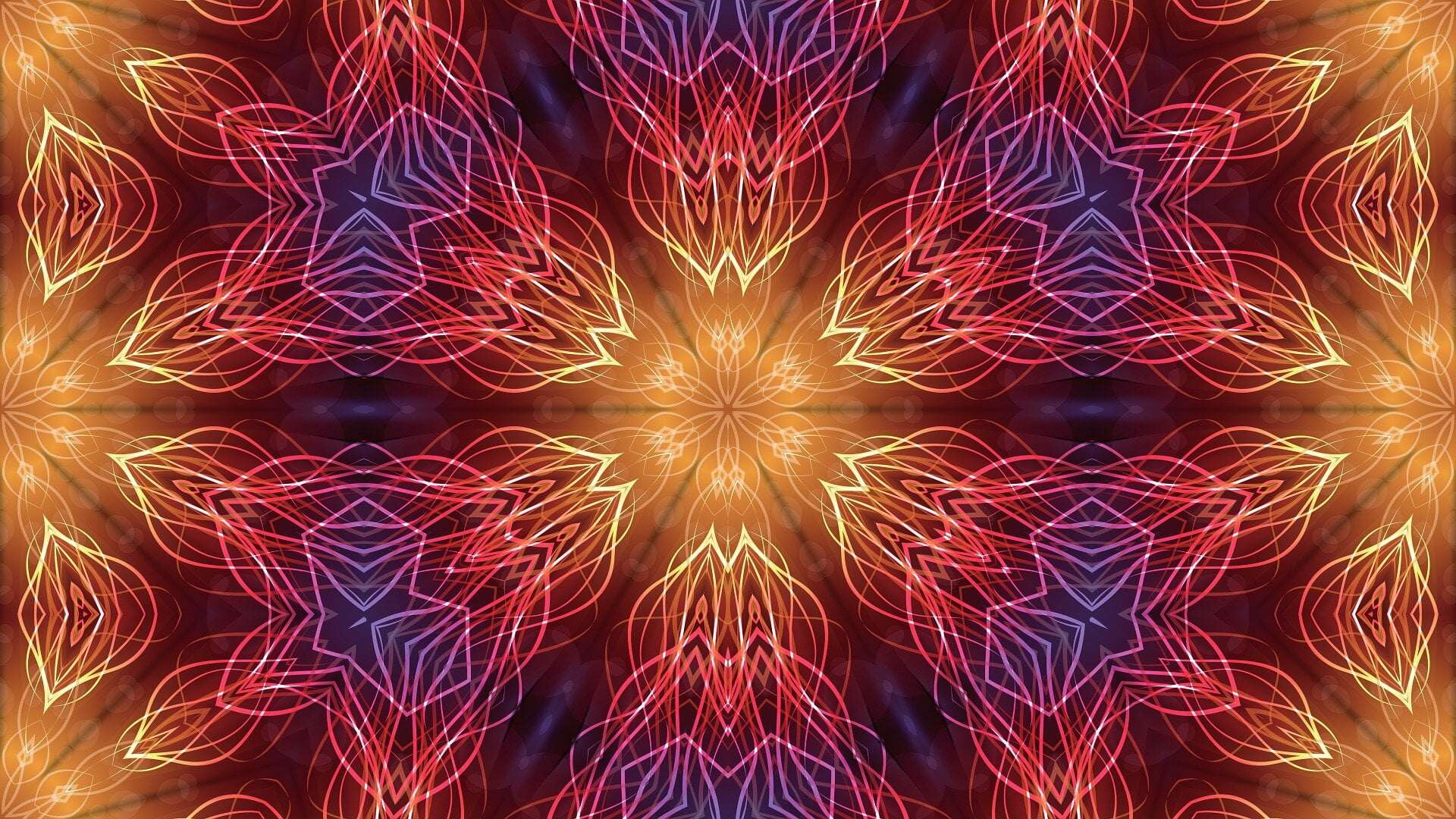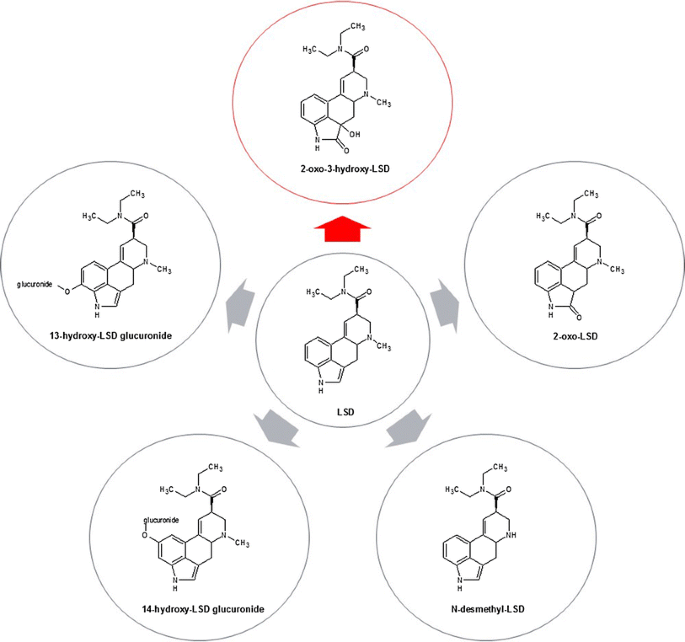Psychedelics For Depression And Anxiety

Psychedelics For Depression And Anxiety
Psychedelic therapy is the use of plants and compounds that can induce hallucinations to treat mental health diagnoses, such as depression and post-traumatic stress disorder (PTSD).
Some of the compounds that doctors most frequently use in this form of treatment include psilocybin mushrooms, LSD, and mescaline (peyote). The formal study of psychedelics to treat mental health conditions is relatively new, but emerging research suggests that these psychedelics may help some people with some symptoms, especially when other methods of treatment have failed.
Researchers do not know exactly how or why psychedelics work in this manner. They may “reset” the brain by altering neurotransmitter levels, induce a new perspective on life by causing a person to have a mystical experienceTrusted Source, or teach a person a new way of thinking. Some research also suggests these psychedelics increase suggestibility, making a person more open to ideas discussed in therapy.
Keep reading to learn more about psychedelic therapy, including more about the conditions it may benefit, the types of treatment, and how it may work.
What is it?

Psychedelic therapy uses psychedelic plant compounds that can induce hallucinations, such as LSD and psilocybin from “magic” mushrooms, to treat mental health issues.
Sometimes doctors prescribe this treatment on its own. Often, though, they combine it with other treatments, such as therapy or other forms of support. The goal of psychedelic therapy is to increase the success of traditional treatments.
In many cases, doctors try this form of therapy on people whose symptoms have not responded well to standard medications or therapies.
How does it work?
Traditional medications for mental health conditions often take several weeks to work, or may only work for as long as a person takes them. Most research on psychedelic therapy, by contrast, has found an immediate improvement, often with a single dose.
Researchers do not know exactly how psychedelics work, and these drugs do not work for everyone. Some potential ways they might work include:
- Mystical or psychedelic experiences: Intensely meaningful experiences under the influence of psychedelics may shift a person’s mindset or belief system, causing them to think or behave differently.
- Increased suggestibility: People using psychedelics may be more suggestible. This can make them more responsive to positive suggestions from a therapist, or to the benefits of their own hallucinations.
- Neurotransmitter changes: Neurotransmitters are chemical messengers in the brain. Many mental health drugs act directly on neurotransmitters to change mood. Certain psychedelic drugs also may act on neurotransmitters, changing the brain’s behavior and improving mood.
Types
Doctors can use many different drugs in psychedelic therapy, though most recent research has looked at psilocybin, a substance found in psychedelic mushrooms. Learn more about psilocybin here.
Some other drug options includeTrusted Source:
- LSD: A chemical found in several plants
- DMT: A chemical available in some plants
- MDMA: Found in the sassafras tree, and known for its role in the drug Ecstasy
- Mescaline: found in some cacti, such as the peyote cactus
Psychedelic therapy remains an experimental treatment, which means that people can usually only access this treatment via clinical trials. Some types of psychedelic therapy include:
- Drug-assisted therapy: This is when a provider offers traditional treatments, such as psychotherapy, alongside psychedelics.
- Psychedelics alone: A provider might only give a person a psychedelic drug, with no additional treatment.
- Guided therapy: In some forms of psychedelic treatment, a person guides a person through the psychedelic “high,” offering therapeutic suggestions and helping the person remain calm.
Uses and benefits
Below are some potential health benefits of psychedelic therapy:
Terminal illnesses
Facing a serious or deadly diagnosis can be scary, especially if a person feels anxiety about death itself or what might happen afterward. A handful of studies suggest that psychedelic therapy may ease this existential dread, as well as the anxiety and depression that accompany it.
A 2016 study of 29 people with cancer who had anxiety or depression related to their diagnosis compared those who got a single dose of psilocybin mushrooms to those who got a placebo. The psilocybin reduced cancer-related anxiety, hopelessness, and dread immediately after the dose. At 6.5 months, 60 to 80% of the psilocybin group continued to report improvements in depression and anxiety.
Another 2016 study of 51 people with life-threatening cancer arrived at similar conclusions. Participants either took a dose of psilocybin or a placebo-like low dose of psilocybin. The high-dose psilocybin group reported significant improvements across many domains of functioning, including improvements in mood and relationships.
These improvements persisted for 80% of participants when researchers followed up 6 months later.
In both studies, participants reported mystical experiences or spiritualistic experiences. These may help a person glimpse death, feel like everything is connected, or better envision their version of the divine. These experiences, both studies found mediated rates of anxiety and depression. This suggests mystical experiences may play a role in the mental health benefits of psychedelics.
Depression and anxiety
Psychedelic therapy may also ease symptoms of depression and anxiety in people not facing serious illnesses.
A 2020 reviewTrusted Source reported on 24 prior studies on psychedelic drugs to treat anxiety symptoms. It said 65% of studies reported a reduction in anxiety with psychedelics, though the studies were small and some had methodological flaws.
A 2021 study asked 164 people who reported experiencing a psychedelic experience to discuss their mental health symptoms. Participants reported significant reductions in depression, anxiety, and stress following the psychedelic experience. An analysis revealed that participants also had greater compassion and less frequent rumination.
However, because the study relied on self-reporting, it does not conclusively prove that psychedelic experiences can affect mental health. Rather, it suggests a mechanism through which psychedelics might improve mental health, which is in feeling greater self-compassion and less obsession with negative thoughts.
A 2017 study looked at people with treatment-resistant depression. Researchers gave 20 people with mostly severe depression two doses of psilocybin 7 days apart, then followed up with them for 6 months.
Researchers observed a significant reduction in symptoms for the first 5 weeks following treatment. At 5 weeks, nine participants had responded to treatment, and four had depression that was in remission. Participants were more likely to have improvements in their depression symptoms if they had quality psychedelic experiences during the drug dose.
Post-traumatic stress (PTSD)
The psychedelic effects of hallucinogenic drugs may help ease the effects of trauma, but research so far has produced mixed results.
A 2020 systematic review looked at four studies of MDMA and five studies of ketamine for the treatment of trauma. The evidence supporting ketamine alone was very low, while the evidence for ketamine with psychotherapy was low. Researchers found moderate evidence supporting the effectiveness of MDMA.
Another 2020 study followed gay male survivors of the AIDS pandemic who reported feeling demoralized. Participants attended eight to 10 group therapy sessions and got one dose of psilocybin. At 3 months, researchers found clinically significant reductions in participants’ symptoms of demoralization.
Addiction
An emerging body of research suggests that psychedelic therapy may help ease some symptoms of addiction. Addiction and other mental health symptoms, such as depression, commonly occur together, which may help explain the benefits. Perhaps by reducing other mental health symptoms, psychedelics make it easier to quit abusing substances.
A 2015 proof-of-concept study recruited 10 volunteers with alcohol addiction to undergo psilocybin therapy along with a type of psychotherapy called motivational enhancement therapy. In the first four weeks, during which participants only received psychotherapy, alcohol use did not decrease. After taking psilocybin, though, participants drank significantly less.
Participants who had intense psychedelic experiences were more likely to quit drinking.
A 2016 study suggests psilocybin might also help people quit smoking. Researchers recruited 15 volunteers to receive both psilocybin and a cognitive-behavioral therapy-based quit-smoking program.
A year later, 67% had successfully quit smoking, and at 16 months, 16% remained non-smokers. These are significantly higher success rates than doctors typically see either with other medication or with therapy alone.
Ibogaine is another plant compound that early research suggests may prove beneficial in treating extreme addiction. Learn more about it here.
Eating disorders
The mystical and psychedelic experiences a person has with psychedelic therapy may shift their body image away from unhealthy thoughts, potentially easing symptoms of eating disorders.
A 2020 systematic review reports on people who underwent psychedelic therapy for eating disorders, several of whom said their experiences while under the influence of drugs offered them new insights that encouraged them to embrace healthier habits.
People with eating disorders often have other mental health symptoms, so psychedelic therapy might ease the symptoms that lead to disordered eating. A 2020 study of 28 people with a history of eating disorders found that psychedelics significantly reduced participants’ reported depression symptoms.
Risks
Psychedelic drugs induce powerful changes in consciousness that can cause serious side effects. These may includeTrusted Source:
- Psychosis: This is a break from reality that may be more likely in people with conditions known to cause psychosis.
- Fear: Some people hallucinate things that terrify them, cause them to believe they are dying, or even that induce trauma and flashbacks.
- Cardiovascular issues: Psychedelics can elevate the heart rate and blood pressure, so people with a history of heart disease should discuss their history with a provider before trying psychedelics.
It is very important to note, however, that despite these risks, most studies report few or no negative reactions.
Summary
Psychedelic drugs can induce powerful, and nearly immediate, psychological changes. Some research suggests these changes persist over the long term, offering hope to people struggling with serious mental health conditions.
Psychedelics remain an experimental treatment, and not something someone can get as a matter of course in their doctor’s office or in therapy. Moreover, researchers do not fully understand how they work, how to predict who will get the best results, or how to minimize the risk of side effects. For most people, the benefits of psychedelics remain purely theoretical.
As more research emerges, psychedelics could become mainstream and accessible. Until then, people interested in trying this treatment should talk to a provider about joining a clinical trial.






